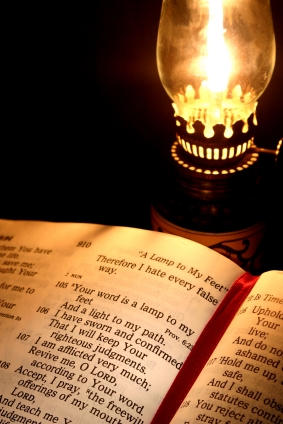My soul longed and even yearned for the courts of the LORD; my heart and my flesh sing for joy to the living God. (Psalm 84:2)
 How does worship affect you? Does it capture you heart, mind, soul, and flesh? It should. After all, if you love Him with all of your heart, soul, mind, and strength, shouldn’t His worship embrace you that deeply as well?
How does worship affect you? Does it capture you heart, mind, soul, and flesh? It should. After all, if you love Him with all of your heart, soul, mind, and strength, shouldn’t His worship embrace you that deeply as well?
Over and over in the New Testament we read about the flesh battling against the Spirit, the Spirit lusting after the flesh.
For those who are according to the flesh set their minds on the things of the flesh, but those who are according to the Spirit, the things of the Spirit. For the mind set on the flesh is death, but the mind set on the Spirit is life and peace. (Romans 8:5-6)
But I say, walk by the Spirit, and you will not carry out the desire of the flesh. For the flesh sets its desire against the Spirit, and the Spirit against the flesh; for these are in opposition to one another, so that you may not do the things that you please. (Galatians 5:17)
So depending on what you walk by, and what your mind is set upon, then a worship that will capture all of you is certainly possible.
The longing of your soul is not merely longing, it is deep longing. And yearning has many intense meanings: to be spent, used up, wasted, consumed, to be exhausted; and to be finished, even to the point of being destroyed.
I have been privileged to have led worship in several churches for about 40 years, but to my shame, I have never been consumed by worship, never spent nor exhausted by worship. I have been tired and even used up after a couple services in the morning, but that was a result of the energy and emotion spent by me in leading worship; not the worship using me up. And that saddens me.
Coming into the LORD’s Presence and being filled by His worship and His Spirit should consume us. But does it? Are we too concerned about pitches and rhythms? Too invested in production values? Perhaps too worried by appearance so as not to become abandoned in worship? Maybe it’s the distractions around us or the baggage within us.
I wish I had an easy answer…I do not. But each day that I come before Him to worship Him, I pray to be consumed by His worship. And that is my prayer for you.

 Life often pulls us in opposite directions. Verse 2 in this Psalm is actually repeated by David in verse 6. And reading it, you may get the sense that David is patiently waiting on the LORD, just being still. But between verse 2 and 6 are verses 3 and 4, and here we discover the context:
Life often pulls us in opposite directions. Verse 2 in this Psalm is actually repeated by David in verse 6. And reading it, you may get the sense that David is patiently waiting on the LORD, just being still. But between verse 2 and 6 are verses 3 and 4, and here we discover the context: I don’t want to draw an parallels between Israel as a nation and any other nation today or even in the ancient world. Israel has been and is unique. But the parallel we can draw is about the people He has chosen as an inheritance. Paul tells us in Romans:
I don’t want to draw an parallels between Israel as a nation and any other nation today or even in the ancient world. Israel has been and is unique. But the parallel we can draw is about the people He has chosen as an inheritance. Paul tells us in Romans:
 I had a chat with a friend at work and we were talking about the word hope. And as is often the case, our culture has diluted the meaning of the word. It now has to do with wishes, wants, and desires—things which may or may not happen. And I suppose that makes sense. If your hope is based upon the character and nature of someone (or something) other than God, then hope is little more than a crap shoot.
I had a chat with a friend at work and we were talking about the word hope. And as is often the case, our culture has diluted the meaning of the word. It now has to do with wishes, wants, and desires—things which may or may not happen. And I suppose that makes sense. If your hope is based upon the character and nature of someone (or something) other than God, then hope is little more than a crap shoot. There are two very important words in this verse: dwell and abide. The word dwell in Hebrew is used for a lot of words. It can be translated as some form of inhabit, sit, stay, remain, and even married. Do you get the impression that dwelling in the shelter of the Most High is a place where not only do you want to stay, but it is a place where you are welcome. And it is a place that is close, maybe even home.
There are two very important words in this verse: dwell and abide. The word dwell in Hebrew is used for a lot of words. It can be translated as some form of inhabit, sit, stay, remain, and even married. Do you get the impression that dwelling in the shelter of the Most High is a place where not only do you want to stay, but it is a place where you are welcome. And it is a place that is close, maybe even home. spread them out over a number of days, pull Scripture from all over the Bible to show how consistent and clear God’s Word is. But in the above six verses, which are the last verses of this Psalm, there is just one simple thing to learn.
spread them out over a number of days, pull Scripture from all over the Bible to show how consistent and clear God’s Word is. But in the above six verses, which are the last verses of this Psalm, there is just one simple thing to learn. For those in Philippians 2 who must bow and confess, so it will be for the enemies of God in Psalm 83. It’s too late; they will be dead, but they will know who the LORD is. No chance to repent. No chance to believe and confess. No chance to find forgiveness.
For those in Philippians 2 who must bow and confess, so it will be for the enemies of God in Psalm 83. It’s too late; they will be dead, but they will know who the LORD is. No chance to repent. No chance to believe and confess. No chance to find forgiveness. With every bone in my body. When I looked up the word for bone in the Hebrew, it meant…bone. But it also means (as secondary translations) body, limbs, self and strength. That’s a pretty significant commitment for praise. And when you add the word every, which is also translated as whole, all, completely, anything, whatever and whenever, the praise become totally consuming.
With every bone in my body. When I looked up the word for bone in the Hebrew, it meant…bone. But it also means (as secondary translations) body, limbs, self and strength. That’s a pretty significant commitment for praise. And when you add the word every, which is also translated as whole, all, completely, anything, whatever and whenever, the praise become totally consuming. There are two words in this verse which are either lost, or come at a premium, depending on your worldview. They are true and trust. And trust cannot exist without truth. So let’s tackle true first.
There are two words in this verse which are either lost, or come at a premium, depending on your worldview. They are true and trust. And trust cannot exist without truth. So let’s tackle true first. What does it mean that the Word of the Lord holds true? Some of the definitions of true are straight and level. God will go great lengths to speak to us: A voice is calling, “Clear the way for the LORD in the wilderness; make smooth in the desert a highway for our God. Let every valley be lifted up, and every mountain and hill be made low; and let the rough ground become a plain, and the rugged terrain a broad valley; then the glory of the LORD will be revealed, and all flesh will see it together; for the mouth of the LORD has spoken.” (Isaiah 40:3-5) It should be noted these were the words quoted by John the Baptist as he began his ministry, soon to proclaim the coming of Christ. Things would be level, straight and plain; then glory of the Lord would be revealed—Jesus would be revealed.
What does it mean that the Word of the Lord holds true? Some of the definitions of true are straight and level. God will go great lengths to speak to us: A voice is calling, “Clear the way for the LORD in the wilderness; make smooth in the desert a highway for our God. Let every valley be lifted up, and every mountain and hill be made low; and let the rough ground become a plain, and the rugged terrain a broad valley; then the glory of the LORD will be revealed, and all flesh will see it together; for the mouth of the LORD has spoken.” (Isaiah 40:3-5) It should be noted these were the words quoted by John the Baptist as he began his ministry, soon to proclaim the coming of Christ. Things would be level, straight and plain; then glory of the Lord would be revealed—Jesus would be revealed. My soul is among lions; I must lie among those who breathe forth fire, even the sons of men, whose teeth are spears and arrows and their tongue a sharp sword. Be exalted above the heavens, O God; let Your glory be above all the earth. They have prepared a net for my steps; my soul is bowed down; They dug a pit before me. (vs. 4-6)
My soul is among lions; I must lie among those who breathe forth fire, even the sons of men, whose teeth are spears and arrows and their tongue a sharp sword. Be exalted above the heavens, O God; let Your glory be above all the earth. They have prepared a net for my steps; my soul is bowed down; They dug a pit before me. (vs. 4-6)